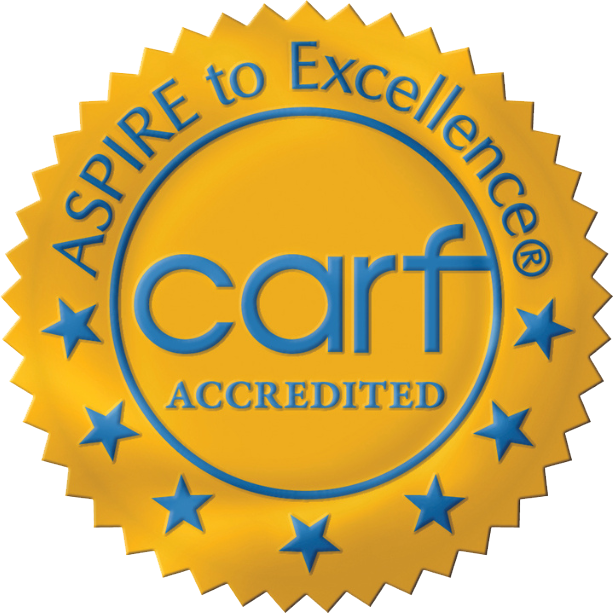Brain injuries can profoundly impact an individual’s life, affecting their ability to perform everyday tasks and even altering their personality and cognitive skills. Occupational therapy plays a crucial role in the rehabilitation process. Occupational therapists use specialized techniques and interventions to help individuals regain their independence and improve their overall quality of life.
In this blog, we will delve into the vital role that occupational therapy plays in brain injury rehabilitation and how it can significantly improve the recovery of those affected by these life-changing injuries. So, let’s explore the power of occupational therapy and how it can aid in recovery from brain injury. Additionally, we will discuss the beneficial ways in which including occupational therapy in a rehabilitation program can boost an individual’s physical, emotional, and mental well-being.
What is Occupational Therapy (OT)?
Occupational therapy is a client-centered health profession that helps people across the lifespan to participate in what they want and need to do through the therapeutic use of everyday activities (occupations). Occupational therapists enable people to live fully by promoting health, preventing or managing injury, illness, or disability, and facilitating participation in meaningful occupations.
The importance of rehabilitation for individuals with brain injury

Brain injuries can tremendously impact an individual’s quality of life. This type of injury can result from various causes, such as car accidents, falls, and sports injuries. A brain injury can result in physical, cognitive, and emotional impairments depending on the severity. These impairments can significantly affect a person’s ability to function in daily life.
Rehabilitation is an essential aspect of recovery for individuals with brain injury. It involves a combination of medical, physical, and psychological therapies to restore function and improve overall well-being.
The importance of rehabilitation for individuals with brain injury cannot be overstated. Here are some key reasons why:
- Restores Physical Function
Brain injury can result in a range of physical disabilities, such as loss of limb strength, impaired coordination, and difficulty with balance and movement.
Rehabilitation helps to address these physical impairments by providing targeted exercises and therapies to improve muscle strength, balance, and coordination. Physical rehabilitation also allows individuals with brain injury to relearn basic activities of daily living, such as eating, dressing, and bathing.
- Improves Cognitive Function
Brain injury can also impact cognitive abilities, such as memory, attention, and decision-making. Rehabilitation programs include cognitive exercises and therapies to help individuals with brain injury improve their cognitive function.
These activities may involve puzzles, memory games, and tasks that challenge problem-solving skills. Through rehabilitation, individuals can regain some of their lost cognitive abilities and improve their overall quality of life.
- Addresses Emotional Challenges
Adjusting to life after a brain injury can be challenging, and individuals may experience a range of emotional difficulties, such as anxiety, depression, and irritability. Rehabilitation includes psychological therapy for brain injury patients to help them cope with their emotions and learn strategies to manage them effectively. This can significantly improve their overall mental health and well-being.
- Encourages Independence
One of the main goals of rehabilitation is to help individuals regain their independence. This involves learning to independently perform daily tasks and activities, such as getting dressed, cooking, and using public transportation. Through therapy and training, individuals can build the skills and confidence they need to carry out these tasks, allowing them to lead more independent and fulfilling lives.
- Provides Support for Family Members
A brain injury not only affects the individual but also their loved ones. Rehabilitation programs often include support for family members and caregivers, providing them with the education and tools they need to support their loved one’s recovery. This support can be crucial in helping families navigate the challenges of caring for someone with a brain injury.

Types of occupational therapy interventions used in brain injury rehabilitation
Occupational therapy is a crucial aspect of brain injury rehabilitation. It aims to help individuals regain independence and improve their quality of life after experiencing a brain injury. Let’s explore the different types of occupational therapy interventions used in brain injury rehabilitation and how they can benefit individuals on their recovery journey.
Activities of Daily Living (ADL) Training
One of the main goals of occupational therapy in brain injury rehabilitation is to help individuals relearn or adapt to performing daily tasks independently. ADL training involves teaching patients how to complete basic tasks such as dressing, bathing, and eating, which may have become challenging after a brain injury. This intervention focuses on improving physical, cognitive, and motor skills to achieve greater independence in daily living.
Cognitive Rehabilitation
Brain injuries can often result in cognitive impairments, making it difficult for individuals to process information, remember details, and make decisions. Cognitive rehabilitation addresses these challenges using memory training, problem-solving exercises, and activities that improve attention and concentration. This intervention aims to improve mental functioning and help individuals regain their ability to carry out daily tasks effectively.
Adaptive Equipment and Home Modifications
In some cases, brain injuries can cause physical limitations that make it challenging to perform everyday activities. Occupational therapists may recommend using adaptive equipment such as grab bars, shower chairs, and wheelchair ramps to help individuals compensate for their impairment. They may also suggest modifying the home environment to improve accessibility and safety.
Sensory Integration Therapy
Brain injuries can also lead to sensory processing issues, where individuals may have difficulty processing and interpreting information from their senses, such as touch, sight, and sound. Sensory integration therapy addresses these issues using activities that help individuals regulate and organize sensory input. This intervention can improve an individual’s ability to focus, respond appropriately, and engage in daily tasks without experiencing sensory overload.
Vocational Rehabilitation
A brain injury can also impact an individual’s ability to perform job-related tasks and return to work. Vocational rehabilitation involves working with occupational therapists to assess the individual’s abilities and develop a plan to improve their skills and return to work successfully. This may include job training, workplace accommodations, and assistance with job seeking.
Leisure and Recreational Therapy
Leisure and recreational activities can provide a sense of enjoyment and purpose for individuals undergoing brain injury rehabilitation. Occupational therapists use leisure and recreational therapy to help individuals engage in hobbies and activities they enjoy and explore new interests that can improve their physical, cognitive, and emotional well-being.
Transform Life with Progressions Rehab’s Brain Injury Therapy
Unlock potential and reclaim independence with Progressions Rehab’s Occupational Therapy for Brain Injury. If you’re searching online for “traumatic brain injury long-term care facilities near me,” you can trust our expert therapists to provide you personalized care, guiding you towards recovery and renewed quality of life.
Additionally, we provide a range of services such as:
From cognitive exercises to daily living skills, we tailor our approach to each unique journey. Embrace progress and regain control over your life today. Don’t let brain injury hold you back. Take the first step towards empowerment with Progressions Rehab. Discover the difference our therapy can make.
Contact us now to schedule your consultation and embark on your path to healing.

***
The material on this site is for informational purposes only and DOES NOT CONSTITUTE THE PROVIDING OF MEDICAL ADVICE, and is not intended to be a substitute for independent professional medical judgment, advice, diagnosis, or treatment. Always seek the advice of your physician or other qualified healthcare provider with any questions or concerns you may have regarding your health.



